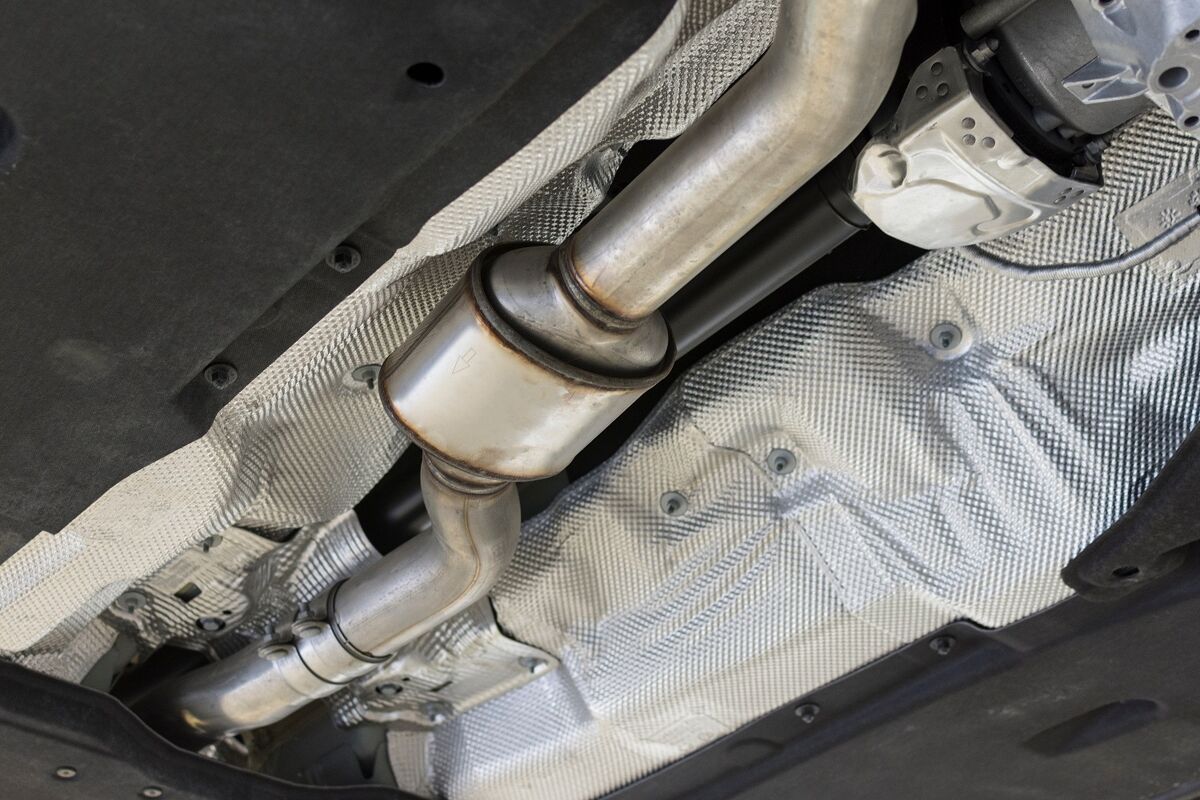Catalytic converter theft
Organised criminals can remove catalytic converters from under a vehicle in a matter of minutes.
Catalytic converters contain precious metals such as rhodium, platinum and palladium which ‘clean’ exhaust gases. The sharp rise in the value of these metals over recent years has driven up the rate of catalytic converter theft. Palladium is currently more valuable than gold, meaning that a catalytic converter can sell for more than £500 on the black market.
If you have information on those behind catalytic converter theft, call us free on 0800 555 111 or report online:
Catalytic converter theft is a crime and leaves drivers with an average replacement bill of £1,300. In some cases, the vehicle may even be written off by the damage caused by thieves sawing converters from the exhaust. This crime can also cause immense stress and anxiety to victims, with some drivers being repeatedly targeted.
If you are approached to buy catalytic converters which you suspect may be stolen, you can contact us 100% anonymously to tell us what you know. We don’t need to know your name, just as much information as you can give us, such as the whereabouts of the criminals and who they are selling the metal to.
Under the Scrap Metal Dealers Act of 2013, dealers must verify the name and address of the supplier and record a receipt of the exchange, and must not pay cash for scrap metal.
Those selling stolen catalytic converters may:
- Want to be paid in cash and make no record of the transaction.
- Refuse to provide proof of identity.
- Refuse to disclose where the devices came from.
Here are some steps you can take to reduce the risk of your vehicle being targeted:
- Avoid parking half on the pavement, half on the road, as this may provide thieves with easier access to the underside of your vehicle.
- Park your vehicle in a locked garage whenever possible.
- Try to park in busy, well-lit areas, or areas covered by CCTV.
- Install an under-car alarm system.
- Ask your garage to tell you your catalytic converter's serial number, and make a note of it.
- Consider purchasing forensic liquid and using it to mark your catalytic converter.
- Place a protective covering over your catalytic converter.
- If you have a fleet of vehicles, try to restrict access to high ground clearance vehicles by blocking them with lower vehicles.
- Driving without a catalytic converter is illegal, as your vehicle will produce emissions above the permitted standard, which means police can issue drivers with a fine of up to £1,000 if a catalytic converter is missing.
- You should be able to tell if your car’s catalytic converter has been stolen when starting up, as the exhaust will likely sound much louder.
- On discovery of the theft, do not drive your car. Instead contact your local police station and your insurance provider to arrange a repair.
Keep your car secure from thieves
Thieves don't only steal catalytic convertors; read our vehicle safety tips, or for more prevention advice to stop your car being broken into visit police.uk.
Find out more about catalytic converter crime, and how to keep your vehicle safe, on the Neighbourhood Watch website:
Other useful links
- The RAC reports that almost 100,000 catalytic converters were stolen in the UK between 2019 and 2022. Check out their practical guidance for protecting your car from this crime.
- Search for car parks which have achieved the Safer Parking Scheme Park Mark Award, meaning they have low crime rates and measures in place to ensure the safety of people and vehicles.
- Consider installing products to protect your vehicle from catalytic converter theft attacks such as a Catloc, which is accredited to Automotive Gold Insurance standard with Sold Secure.
- Search for security products to protect your vehicle from theft that are verified by Thatcham Security Certification, which assesses a product’s functionality, performance, and capabilities.
Stop thieves - all year round. Find out more about our Safer Communities campaign:

Give information
Give information anonymously by phone on 0800 555 111 or online

Donate to us
Join our fight against crime by making us a donation today, and see how the money you give can help shape your community for the better.

Be a force for good & volunteer
Help make communities safer together by volunteering with your local Crimestoppers team.

